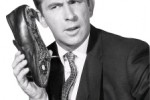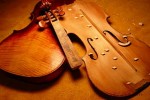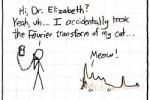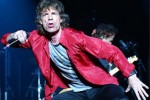If I ever woke up on an operating table. . . no wait,
If you ever woke up on an operating table, which would be a shock in itself, you would be surprised to hear, over the sounds of your resonant screams and the nurse’s panicked squeaks, the faint strains of Yo Yo Ma performing the opening strains to Bach Suite No.3: Air on a G-String.
Can Music Help a Surgeon?
Even if that is a rarity, (surgeons prefer Pachabel’s Canon for some reason, not about the patient being woken up on the table) music in medicine, has been around for quite some time, in fact, the early Mesopotamians believed in the healing power of music as early as 4000 B.C. Maybe their surgical skills were only up till scratch (and gouge and poke), but they knew a fundamental truth, music heals.
Claudius Conrad a German born, surgical resident at Massachusetts General Hospital has performed actual, scholar grade research on the effects of music on a surgeon’s capability to perform delicate surgeries. Eight of Conrad’s fellow surgeons were enlisted to perform laparoscopic procedures on a computer simulator, all of which involve very small incisions. The conditions were varied, however.
The skills of the chosen eight, were tested in silence; with Mozart playing peacefully in the background, and finally with the god awful combination of German folk and metal, one in each ear.
Unsurprisingly, the surgeons were unable to learn new tasks in the third case, though their accuracy was unerring as ever, but with each task taking longer to complete. Mozart however, had a much more beneficial effect, with an increased accuracy among varying speeds, for each surgeon. The surgeon’s performance in silence was taken as a control case.
When the same procedure was tried on 40 participants, with no prior surgical training, the symphonies of Mozart again had a beneficial effect when they repeated the procedure (thank heavens, this was a computer they tried on).
Though conducted as a pilot case, Conrad’s paper (which will soon be published in Surgical Endoscopy), does not take into account the younger populace of surgeons, many of whom actually like death metal. Conrad himself observed that they respond to dichotic music, in varied ways.
Conrad has also worked on a similar study with critically ill patients, and observed that their response to treatment actually improved with a little Mozart Therapy.
Conrad’s interest in music is understandable, considering he is both, trained as a concert pianist and has a PhD in Music philosophy.






Hello, just FYI, as a board certified anesthesiologist,I can tell you that I have many patients conscious in the OR. Some types of anesthesia, such as when I completely numb the arm, provide great pain relief with a conscious patient and less risk than a general anesthetic.
And we always listen to music in the OR…